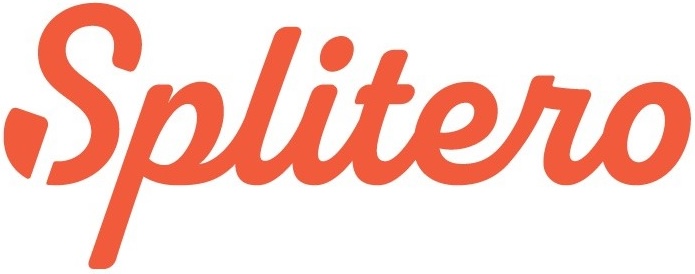
Home Equity Agreement
- No monthly payments
- Available for various property types: single-family homes, condos, 1-4 unit properties, and townhomes
- No minimum income requirements
- Funds can be used for any purpose with no restrictions
- Prequalification available to check eligibility without commitment
- No fixed term length; repayment based on major life events (e.g., sale of the home)
- Limited availability, currently only offered in California
- 3% transaction fee plus additional third-party fees
- Limited transparency on specific costs and repayment terms
- Limited buyout options, requiring a full buyout or property sale
EquiFi offers a unique way to access your home’s equity without monthly payments, but its limitations may make it less competitive compared to other home equity agreements. Only available in California, EquiFi lacks transparency on some key terms. The agreement also includes a 3% transaction fee and additional third-party costs, which can add up quickly.
While EquiFi’s flexibility—with no fixed repayment term and unrestricted use of funds—might suit some homeowners, alternatives like Point, Hometap, and Unlock offer broader availability across multiple states, more transparent terms, and additional buyout options, such as partial buybacks. These features may provide a better overall fit for homeowners seeking more control and clarity in their equity-sharing agreements.
How does a EquiFi shared equity loan work?
The EquiFi Funding Instrument provides California homeowners with two main options: accessing cash by leveraging the equity in an existing home or using EquiFi’s co-investment to help finance a new home purchase. In either case, EquiFi provides upfront funds in exchange for a share in the home’s future appreciation, without monthly payments.
In this arrangement, EquiFi essentially invests in your home’s potential value growth, giving you immediate cash or co-investment support in return for a percentage of future appreciation. Repayment is event-driven, typically occurring when the property is sold, refinanced, or if the homeowner chooses to buy out EquiFi’s share.
The agreement includes a 3% transaction fee plus additional third-party fees, which may cover appraisal, title, escrow, and recording costs. Funds can be used without restriction, though EquiFi does not disclose its maximum loan-to-value (LTV) ratio.
| Key terms | Details |
| Availability | California only |
| Min. credit score | 680 |
| Eligible properties | Single-family homes, condos, 1-4 unit residences |
| Transaction fee | 3% of the funding amount |
| Third-party fees | Additional, may cover appraisal, title, escrow, recording |
| Repayment | Due upon sale, refinance, or buyout |
| Fund use restrictions | None |
| Repayment structure | Based on home appreciation at time of sale or buyout |
| Maximum LTV ratio | Not disclosed |
Example
Suppose a California homeowner with a single-family home valued at $500,000 needs $50,000 in cash and qualifies with EquiFi. In exchange for this amount, they agree to give EquiFi a 10% share in future appreciation.
If the home’s value later rises to $600,000, EquiFi’s portion would equal $10,000 of the $100,000 appreciation. The homeowner would repay the original $50,000 plus EquiFi’s $10,000 share, totaling $60,000.
EquiFi’s model offers flexible equity access, whether for existing homeowners or as a co-investment in a home purchase, though other options may provide more flexible buyout terms, disclosed LTV ratios, and broader availability.
EquiFi shared equity loan customer reviews
As of November 2024, customer reviews for EquiFi’s shared equity loans are limited, reflecting the company’s relatively recent market entry and current availability restricted to California.
This scarcity of feedback makes it challenging to assess customer satisfaction and the overall effectiveness of EquiFi’s services. We encourage you to consult with financial advisors and conduct thorough research to determine if EquiFi’s offerings align with your financial goals.
Is an EquiFi shared equity agreement a good idea?
EquiFi’s shared equity agreements offer a unique way to access home equity with no monthly payments, but they come with some potential limitations. Here’s a quick look at the pros and cons to help you decide:
Pros
-
Upfront cash access
EquiFi provides funds without monthly repayments, ideal for homeowners needing immediate liquidity.
-
No impact on monthly obligations
Unlike traditional loans, EquiFi’s agreement allows you to access cash without increasing monthly debt payments.
Cons
-
Transaction and third-party fees
EquiFi charges a 3% transaction fee, plus additional costs for services like appraisal, title, and escrow.
-
Limited availability
Currently, EquiFi is only available to homeowners in California.
-
Unspecified LTV ratio
EquiFi does not disclose its maximum loan-to-value (LTV) ratio, potentially limiting funding without clear guidelines.
Before committing, homeowners may want to consult a financial advisor to weigh these factors and assess whether EquiFi’s offering aligns with their financial goals.
Alternatives to EquiFi’s shared equity agreement
If you’re considering alternatives to EquiFi’s shared equity agreement, here’s a look at some other companies offering home equity sharing options:
| Company | Best for… | Rating (0-5) |
|---|---|---|

|
Best Overall |
|

|
Best for Longer Terms |
|

|
Best for Partial Payments |
|

|
Best for Maturity Match |
|
- Hometap: Available in 16 states, including California and New York, Hometap offers funding between $15,000 and $600,000 with a 10-year term. It charges a 3.5% investment fee plus third-party fees, accepts credit scores as low as 500, and doesn’t require monthly payments. Repayment is due upon sale, refinance, or buyout.
- Point: Operating in 23 states, Point provides funding between $25,000 and $500,000 with a 30-year term. The processing fee can reach up to 3.9%, along with appraisal costs, and credit scores as low as 500 are accepted. Like Hometap, Point does not require monthly payments, and repayment is due upon sale, refinance, or buyout.
- Unlock: Available in 13 states, Unlock offers funding between $30,000 and $500,000 with a 10-year term. It charges an origination fee of up to 4.9% plus appraisal fees, and it allows partial buyouts—giving homeowners the flexibility to buy back their equity in increments over time. Credit scores as low as 500 are accepted, with repayment due upon sale, refinance, or buyout.
- Splitero: Available in California, Colorado, Oregon, Tennessee, Utah, Virginia, and Washington, Splitero provides a no-monthly-payment equity sharing option. Specific terms, fees, and credit score requirements are less transparent than Equifi’s. Repayment is due upon sale, refinance, or buyout, and funds can be used without restrictions.
Each of these alternatives offers distinct features, from Hometap’s shorter term and lower fees to Point’s long repayment period and Unlock’s partial buyout flexibility. For those outside California or seeking more flexible terms, these options may be a better fit than EquiFi.

Our picks for the best home equity agreements
How to apply for an EquiFi shared equity home loan
To apply for an EquiFi shared equity home loan, follow these steps:
- Prequalification: Visit EquiFi’s website to determine eligibility based on factors such as credit score (minimum 680) and property type (single-family homes, condos, and one to four-unit residences).
- Application: If prequalified, complete the full application, providing necessary financial information and property details.
- Assessment: EquiFi will assess your application, which may include a property appraisal and review of third-party fees.
- Agreement: Upon approval, review and sign the equity sharing agreement, understanding the terms, including the 3% transaction fee and any additional costs.
- Funding: Receive the agreed-upon funds, which can be used without restriction.
Given EquiFi’s limited availability and the fee structure, it’s important for applicants to fully understand the terms before committing.
How we rated EquiFi home equity agreements
LendEDU evaluates home equity companies to help readers find the best home equity agreements. Our latest analysis reviewed 208 data points from 8 companies, with 26 data points collected from each. This information is gathered from company websites, online applications, public disclosures, customer reviews, and direct communication with company representatives. These star ratings help us determine which companies are best for different situations. We don’t believe two companies can be the best for the same purpose, so we only show each best-for designation once.
| Product | Rating |
| EquiFi home equity agreement | 2.5/5 |
About our contributors
-
 Written by Christy Rakoczy
Written by Christy RakoczyChristy Rakoczy has been a personal finance and legal writer since 2008. She has a Juris Doctor degree from UCLA School of Law and was a college instructor before she began writing for the web.
-
 Edited by Amanda Hankel
Edited by Amanda HankelAmanda Hankel is a managing editor at LendEDU. She has more than seven years of experience covering various finance-related topics and has worked for more than 15 years overall in writing, editing, and publishing.